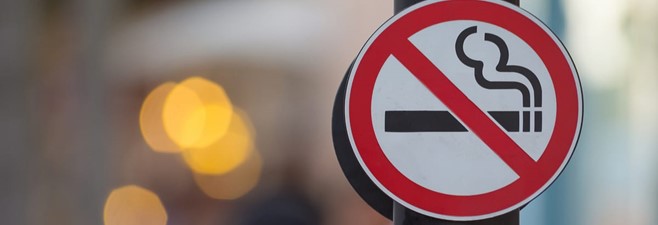26 Apr 2022
Unauthorized smoking in multi-family apartments and public housing authorities proves costly for owners and property managers. Tobacco and marijuana smoking can cause catastrophic events like fires, and turning over a smoke damaged apartment can be expensive.
According to the United States Fire Administration, an estimated 7,000 smoking-related fires occur in residential buildings each year in the US. Additionally, fires caused by cigarette smoking in apartments result in over $300 million in property loss each year. The National Apartment Association reports that property managers spend between $3,000 and $15,000 to get an apartment ready for a new tenant after excessive smoking.
Property managers and public housing authorities are turning to FreshAir Sensor to detect smoking, reduce risks, and save money. FreshAir offers the only technology that can monitor for and specifically detect tobacco and marijuana smoking. FreshAir’s novel and patented sensors bind only with specific molecules that are present when someone is actively smoking tobacco or marijuana. The 24×7 monitoring catches unauthorized smoking and quickly provides scientific proof of tobacco smoke and marijuana smoke.
By maintaining smoke-free buildings with FreshAir Sensor, property managers and public housing authorities save money and reduce the risk of losses. Certain property insurance companies offer discounts for buildings with smoke-free policies. During a FreshAir visit to a New Hampshire apartment complex with 1,800 rental units, the property manager mentioned that they experienced three fires in 6 months. They are looking to install FreshAir smoking detection devices in all units and work with their insurance company to reduce premiums.
In addition to financial costs, the health risks of smoking in multi-family housing are especially troublesome. According to the CDC, 45% of multi-unit housing residents in the U.S. who do not allow smoking in their homes are involuntarily exposed to secondhand smoke in their units. According to the American Academy of Pediatrics, 99% of children in multi-unit housing showed levels of cotinine, a nicotine byproduct, in their blood. Smoking and secondhand smoke are detrimental to children’s health, especially with regards to developmental milestones and respiratory health.
Using FreshAir to enforce no-smoking policies saves money and reduces risks. Property managers can save money on building insurance and maintenance by maintaining smoke-free properties. Property managers and public housing authorities around the country rely on FreshAir to mitigate risks associated with smoking.
